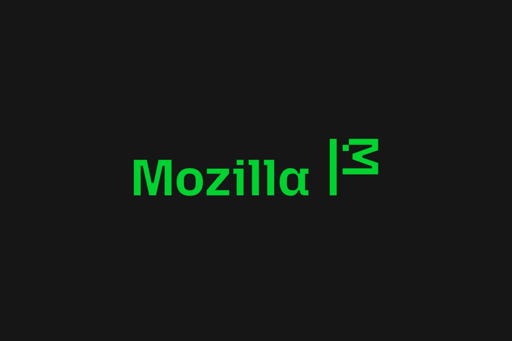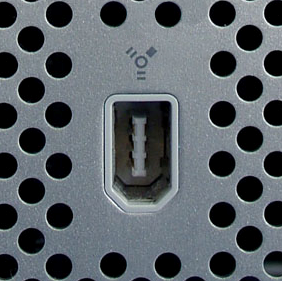- cross-posted to:
- firefox@lemmy.world
- firefox@lemmy.ml
- cross-posted to:
- firefox@lemmy.world
- firefox@lemmy.ml
Pocket was always among the first things I disabled when setting up Firefox and apparently, I wasn’t the only one doing that… I’m sure it had its users but I always found normal bookmarks to be more convenient.
Never even heard of Fakespot, though.
Fakespot was kinda nice, whenever I looked at something on amazon I’d get a sidebar showing which reviews are real and summarizing them. It’s actually pretty useful. Definitely will not miss Pocket.
Is camel camel camel still useful for Amazon?
I’ve found it useful enough not too long ago, mostly for comparing Amazon’s pricing differences for identical products between various EU countries.
Yes CamelCamelCamel is still useful. I check it every time before a major purchase.
Keepa is better, and depending on whether you’re conspiratorial, not compromised as 3Camels was accused of some years ago.
Compromised?
3Camels was, maybe still is, fully dependent on the Amazon affiliate program. A program that was reduced at one point, killed off 3Camels competitors, but not 3Camels. Then Amazon asked them to stop tracking during Covid for a time which they did.
This is around the time that I heard about Keepa which has a different model, not solely Amazon but other stores too, and not paid via affiliates program.
Also it’s just faster. 3Cs was getting super slow to notify. You’d get an email, click and surprise, that sale was over yesterday.
I probably heard about the controversy on Reddit at the time but there’s a chance I found this site here which covers some of my recollections.
Thanks!
Never heard of this. Sounds useful, except I’m really only buying something from them because I need it quickly most of the time. I don’t have the convenience of waiting for price drops like I do with Steam games haha. Thanks for sharing!
didn’t fakespot only work in the USA?
Never tried it outside of the USA, couldn’t tell ya.
I’ve found a better way to use Amazon: not using it and fuck you, Bezos.
based
OMG I JUST started using Pocket because my work banned Firefox and made us all switch to Edge!!
Now how am I going to sync bookmarks and pages I want to read later on my personal devices??
I generate a QR code and scan it with my phone. Don’t sync work and personal devices.
If your work doesn’t care about your productivity then give them what they deserve for the tools they provide.
I’d be very tempted to install Firefox in my local appdata folders (which doesn’t require admin rights to install), then install a theme to make FF look like Edge with something like this..
Still use real Edge browser for work stuff, but FF for less-than-work stuff.
They literally have control of and log every app that’s installed and will bug you until you uninstall it.
Unless they’re doing app signing or binary examination, some of the methods to “log every app” literally look for an executable name. Renaming “firefox.exe” to “explorer.exe” (an obviously allowed executable name) and then executing it will still run Firefox.
Yeah, I don’t know how they’re doing it. They’re using some “zero trust” system. It’s beyond me.
I forgot what it is called but there is an extension that syncs bookmarks between Firefox and Chromium browsers.
There’s Instapaper and once upon a time they even gave you an email address to send links into. Maybe they still do that.
Regardless of whatever it did or however it did it, the way Pocket was suddenly shoved in everyone’s faces by default definitely left a bad taste in a lot of mouths (including mine) and everybody just considered it more unasked-for adware. Especially since in its default configuration about a quarter of what it serves you is indeed flat out ads, when most of us are using Firefox with uBlock or similar specifically not to see ads.
Pocket provided a feature I suspect few people actually used, and in the process had an obnoxious presentation that a lot of people actively disliked. Add me to the list of people who won’t be sad to see it go.
I want my browser developer developing browsers, not other ancillary side projects and certainly not “curating content” or whatever the fuck.
I would not be at all surprised to learn that Pocket costs Mozilla a nontrivial amount of money and manpower to maintain, what with doing all that curation and all, and provides them bupkis in return.
well they are terminating it for a reason.
Bookmarks and services like Pocket are for different things. Bookmarks are for websites you come back to often. Pocket and other services like it are for saving links to stuff you want to remember and/or come back to once or a few times. Bookmarks are not made for having thousands of, while “read later” services are for saving anything and easily have hundreds, thousands, even tens or hundreds of thousands of things saved.
“Read once bookmark”. Problem solved.
deleted by creator
Didn’t some articles have the pocket icon, and some were without? I remember trying it a number of years ago and being completely flummoxed by not being able to save things I wanted to read. Though it could have been user error.
bUt iT’S jUSt bOoKmARkS
- people who are privileged enough to never have experienced multiple days without an internet connection.
it’s a shame to see it go, it’s been the first read-it-later service that I was aware of and used. I’ve moved away to Omnivore (RIP) and then Wallabag (https://wallabag.it/ for 11€/year, but you can self-host it or find someone else to host it for you for a lower fee), but I’ve still been thinking fondly of it, despite Mozilla clearly trying to force people into social reading rather than just serve as a convenient offline storage of articles.
edit: this post isn’t a request for advice, I’m very happy with my current Wallabag setup.
Why would you need a saas solution if it’s for offline reading? Seems like a contradiction
…so that you can read it on a device other than the one you’ve initially opened the link on? I can save a link to Wallabag from my laptop’s browser at home, have my e-reader sync it, and then read it offline while on a train.
what OS does your ereader run? can it run syncthing? can it open HTML?
it’s a jailbroken Paperwhite, so I could look into setting up a Syncthing KOReader plugin, but my current setup works perfectly fine for me.
oh, I realized you have been using wallabag nowadays. but syncthing, plus pages saved with the singlefile or the webscrapbook addon could work fine
Obsidian with the readitlater plugin is good, and actually stored in a standard format entirely on your devices, so truly offline.
I have ended up using Zotero for this, which takes a snapshot of the webpage for offline reading (and preservation). Synced to other clients through my WebDAV server. Originally only used Zotero as a reference manager for academic journal papers, but liked using it more broadly.
I hear you. I discovered Omnivore and was in the process of migrating from Pocket to it until less than a year later Omnivore was gone.
Same. I’ve done pocket and omnivore but now both dead :(
I’ve heard good things about karakeep (also requires self hosting) https://github.com/karakeep-app/karakeep
if you happen to be an apple person Safari’s Reading List can save pages offline.
Check out LinkedIn for this
Edit: multiple days later… Linkwarden not linkedin…
How does all this compare with something like Goodlinks?
well, for starters I can’t install Goodlinks on Linux, Android, or a jailbroken Kindle.
Gotcha
I liked Fakespot. Amazon obviously doesn’t care whether reviews are legit.
Fakespot has always felt inaccurate to me. Once every 6 months or so I gave it a go to see if any of the updates have improved it but it never felt like it did to me.
Furthermore, I don’t see the point in Fakespot since Amazon bends over backwards to accept returns for any reason.
Furthermore, I don’t see the point in Fakespot since Amazon bends over backwards to accept returns for any reason.
Why go through that hassle if you can avoid it in the first place?
Because I’m buying the $8 option from a company called “XYBENOZ”. Without reading the reviews I already know there’s a 56% chance of failure, but I’m willing to take that risk because then it’s Amazon’s problem.
I stopped trusting it much when I noticed there’s a huge difference between the same product on amazon.ca and amazon.com. On one domain it can give something an F grade while on the other domain it will have an A grade.
It’s a nice idea but when you think it about it’s actually kind of hard to determine the quality of a particular listing apart from the obvious checks you can do yourself. Like if the seller is some random drop shipper or actually Amazon or the manufacturer.
Judging reviews with whatever AI system they use is not very accurate anyways. Once again the obvious fake reviews can sometimes stand out. But the better ones a machine can’t tell any more than you can.
I’ve also wondered about Fakespot’s accuracy. I just viewed it as one tool when doing online shopping. I’d prefer not to order crap in the first place than try to return something later.
I generally have already decided what to purchase before I load Amazon’s website. I also rarely purchase cheap white label products, and so Amazon’s reviews are mostly irrelevant to me. I’ve rarely needed to return items too and recently they were all my fault anyway, eg, not quite the dimensions I thought I needed.
I’ve never known about it until just now, but I wish I had, because my mom definitely needs something like that. Quite a shame
Never cared for pocket and always disabled it as spyware. Fake spot will be missed though.
This is an ill omen however. They’re cutting back dramatically in anticipation of their Google funding being lost forever and perhaps as some suggest in anticipation of enshitifying. These were both sold originally as additional revenue streams for Mozilla.
I used to use it before it got acquired by Firefox to store my read it later list.
they’re focusing on AI instead, it seems
Sad news, but trimming the fat is what people wanted Mozilla to do. Anyone know a good alternative to Fakespot? I absolutely don’t trust amazon’s own review summaries, and expect other alternatives would be for-profit data harvesters.
Noo! I loved Pocket. It’s integrated into my Kobo eReader. It was the only good way to get articles easily synced on to an eReader. I hope Kobo buys Pocket. Or Rakuten, since that’s a tech company and they own Kobo.
Supposedly Wallabag works Kobo readers. Most people self host Wallabag but I think they do have a hosted option as well.
YES! No more Pocket button sticking out like a sore thumb!
It literally takes 5 seconds to remove it.
But you can’t remove pocket from firefox just disable it. Given that it wa also a close source binary blob that made firefox not completely open source I’m glad it’s going.
On Firefox? I’ve used it for years and this is the first time I hear of Pocket
On Firefox? I’ve used it for years and this is the first time I hear of Pocket
And then people get all pissy when Google or Microsoft show a pop-up of a new feature…
In a world without dark design patterns, there would be a single pop-up when you first install the application, to ask if you want notifications and/or suggestions for new features. If you click “no”, it should never bother you again unless you go into a menu and opt in. Anything beyond that is inherently predatory.
Ideally, that pop-up wouldn’t even exist. They could just have a collective “don’t bother me again” checkbox on every non-essential notification, so you can easily disable it the first time they become relevant. If your user has already indicated that they are not interested, any further pestering is essentially harassment.
In a world without dark design patterns, there would be a single pop-up when you first install the application, to ask if you want notifications and/or suggestions for new features
This is exactly how it works in things like Office or Edge.
If you click “no”, it should never bother you again unless you go into a menu and opt in
Yup. Or unless a new feature is introduced, in which case a new pop-up appears. That’s precisely how it works.
Ideally, that pop-up wouldn’t even exist. They could just have a collective “don’t bother me again” checkbox on every non-essential notification
Edge, most of the time, just opens a new tab with “Your Edge was updated” and a list of new things.
If your user has already indicated that they are not interested, any further pestering is essentially harassment.
If it was about the same feature that you already dismissed - yeah, I get the sentiment. If it’s about completely new things - it’s a really weird thing to say. How are users supposed to know that something new was introduced? Sift through thousands of lines of changelogs…?
If the user has indicated that they are not interested in new features, it means they do not care about new features. They don’t want to know about them, or they prefer to find out proactively in their own time. If you still insist on ramming notifications down their throat at that point, you’re not doing it for the user. You’re doing it for yourself.
Right. And then we see comments like the one that started this thread: “whoa, there was a Pocket integration??”
Yes, Microsoft is especially bad in this regard. For this whole spring have I clicked hundeds of times that I’m aware that my trial is ending. They also introduced a new feature that they promote on a space that takes literally half the screen. And youtube premium, oh boy.
For this whole spring have I clicked hundeds of times that I’m aware that my trial is ending
This is… not quite related to the topic, no? Trial ending warning is not a “hey, here’s a new feature you might want to try out”.
They also introduced a new feature that they promote on a space that takes literally half the screen
Could you elaborate? I used to use Edge as my daily driver, now it’s my secondary browser. I have no clue what you mean here.
Not speaking of edge here, but the Microsoft fabric/power platform. They tried to sell me some feature for months and eventually i missclicked and started the trial. Now they are notifying that the trial ends in x days and they’ve been extending it so it never ends
Pocket is the sort of shit that makes me embarrassed to recommend Firefox.
Thx for this.
Also, shout-out to https://karakeep.app/ (formerly “Hoarder”)
Thank you! Guess I’ll be trying something new.
I use Pocket since before Mozilla bought it. In combination with my kobo ereader, it changed the way I read the Internet for the better. Self hosting is no option for me and as far as I know Pocket was the best free read-it-later service. And the only one that worked seamless with Kobo. I really hope Rakuten buys it.
I really hope Rakuten buys it.
why do you think they won’t enshittify it? they own viber, see what they did there. ads all over the app, some in channels you can’t disable. once it asked me about the data collection I allow, I had to manually disable it with dozens of toggles for all their “business partners”, and it took at least half an hour.
I don’t know what viber is. I also don’t think they won’t enshittify it. I just hope to buy more time until a similar service or technology appears.
The fuck is a “read it later” service? Bookmarks?
It’s significantly more accessible than trying to sync bookmarks with an Ereader’s shitty browser
It also stripped the webpage to make it readable and mostly distraction-free, plus some services will also include tag suggestions to more easily find it later.
I used Pocket on my Kobo to read articles I saved, much easier to focus on the content and easy on the eyes with the eInk display.
Oh, you are missing so much…
Switched to LibreWolf after seeing the message about Fakespot. It was a heavily used browser add-on I used almost religiously since 2020. Mozilla acquired them in 2023 and then did nothing with it, letting it die. I’m so tired of this bullshit.
As an occasional user, I am sad to see it go. Are there any other sites out there to maintain a list of links that I may find useful in the future? With a web UI and not self hosted?
Never used pocket, how does this differ from just having a bookmarks folder called “stuff to read while you’re taking a shit”?
The difference is in convenience.
On the one hand, you can add a page to your bookmarks, after choosing the correct folder, of course.
On the other hand, you can click a button and a page gets automatically saved in your “read later” storage, with a description, summary, and a preview of the content.
Pocket saved an offline searchable archive of all of the article text. Multiple times I found articles I saved that were no longer online. So no, it’s not the same as bookmarks
I don’t save stuff with it but I read the articles that come up on desktop. so it’s kinda like a community, subreddit, rss feed, whatever
Bookmarks can do all that already or am I missing something?
I use Inoreader as my RSS feed reader and it has a section to save webpages in a similar fashion.
Synced bookmarks. You’ll be happy to learn that this is also a feature Firefox offers.
I don’t want to sync my bookmarks. The sites I want bookmarked on my desktop are not the same as the sites I want bookmarked on my phone nor the sites I want bookmarked on my work laptop.
They go to different locations. The ones from mobile are in “mobile bookmarks”.
Pocket won’t be missed. Self-hosted alternatives like Wallabag are better and private, so switched to it many years ago. Integration (and enabled by default, requiring about:config to disable) ensured I’d never use it out of principle.
Fakespot (the website) was genuinely useful to help ID scams on Am*z*n Marketplace, though I never used the extension. But I think that enshittified in recent years, so (in the style of Stephen King’s Misery) it’s probably for the best.
Related, the Keepa extension is useful as a price rigging detector, but I expect that will “number must go up!” soon enough, too…
Pocket is one service of theirs I did use from time to time. Save an article you want to read later without committing it to a bookmark.
Wish they’d make bookmark not suck so much that using them felt like a commitment to organisationnal chores. The bookmark system is largely unchanged since the netscape days.
You cant search texts inside bookmarks because they only store the url. Which will break. Instead of saving the html itself, as if we still only has hundreds of gigabytes.
It should have a library level search system, capable of not just symbol text but intelligent summarization, categorization, search by relecant, content discovery algorithm, rss feed support all fully local, offline capable.
The whole thing, metadata, html, inages, video, files, code, replay of the changes over time. Yes I should be able to replay clicking “read more” as I expand comments on facebook. I should not lose my work to a page reload ever again. And no that’s nor “too much space”. Web pages are largely text sent super efficiently it is not that much information even compared to a gigabyte.
What you’re describing is so much more difficult from a technical standpoint than you give it credit.
Static pages – sure, the plague of single page applications – oof, that’s a challenge.
I’ve actually been thinking about this a lot. “Save Webpage” is useless nowadays because everything is loaded externally through scripts. What if it saved a timeline of requests and responses somehow and could play it back? This might require recording the entire JS state though… and so much more with browser APIs. Saving just the requests+responses as a cache would fail if the scripting was non-deterministic. Maybe it would make sense to literally save a “recording” of the HTML and CSS changes, playing back only the results of any network requests or JS?
This would be a whole new pipeline to make interactivity work. Emulating a server with cached responses would allow to reuse the JS part of websites and is easier to do. I have no doubt that some pages wouldn’t work and there would be a shitton of security considerations I can’t imagine.
We can save entire operating systems in that way, the heavy burden is borne by the hardware, as far as the software is concerned it is to dump the memory snapshot of the engine into a file and reload it later.
I mean, it’s been almost 30 years and this aspect hasn’t evolved because of a long expired belief that we will be able to re-download it all later as if the internet wasn’t eventually going to churn over and all links will eventually break.
Ok, so your average site doesn’t download content directly. The initial load is just the framework required to fetch and render the content dynamically.
Short of just crawling the whole site, there is no real way to know what, when or why a thing is loaded into memory.
You can’t even be sure that some pages will stay the same after every single refresh.Comparing it to saving the state of OS isn’t fair because the state is in one place. On the machine running the code. The difference here is that the state of the website is not in control of the browser and there’s no standard way to access it in a way that would allow what you’re describing.
Now, again, saving rendered HTML is trivial, but saving the whole state of a dynamic website require a full on web crawler and then not only loading saved pages and scripts, but also emulating the servers to fetch the data rendered.
I understand a VM isn’t the same since at least it is somewhat self-contained.
But at the end of the day, a browser does end up showing you something and has a stable state waiting for your input. These stable moments are like checkpoints or snapshots that can be saved in place, the whole render engine state machine. And that can be saved at multiple times, similar to how internet archive takes periodic static snapshots of websites.
It should be trivial, a one-click action for the user to save the last couple of these checkpoint states to a format that can be consulted later and offline or after the website has gone. Whether that’s just saving “everything” it needs to recreate the machine state, or by saving only the machine state itself.
That doesn’t mean the whole website will remain interactive but it will at the very least preserve what was inside the scroll buffer of the browser
And that is a LOT better than just saving a broken link, or just saving a scrolling screenshot, which already would be an improvement over the current state of things.
It would also allow a text search of the page content of all bookmarked pages. Which would be huge since the current bookmark manager can barely search titles and very poorly at that.
The bookmarks system is long LONG due for a full overhaul
This “machine state” definition and manipulation is exactly the hard part of the concept. I’m not saying it can’t be done, but it’s a beast of a problem.
Our best current solutions are just dumb web crawler bots.
To me a simple page saving (ctrl+s) integration seems like a most realistic solution.
I mean the engine already has a full machine state. I could just run firefox inside a VM and snapshot the VM to save the website in a idle-disconnected state. So it’s a matter of doing something more sane and efficient than this
Now imagine having google, bing, qwant, duck duck go and ecosia bookmarked.
You’d get a mostly empty page with a search box in the middle … and a few hundred megs of tracking software.
Wait, I didn’t know Mozilla actually owned Pocket, I thought they just had a partnership or something…
I used to main Pocket back in the days when I had an iPod Touch 4G and older iPhone models, nowadays… It is storing articles from those days that I bet I haven’t gotten to read 😂
Man, one gets a backlog of everything these days.




















